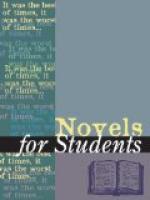|
This section contains 200 words (approx. 1 page at 300 words per page) |
Joan Didion has proven herself one of the most acute observers of and commentators on American life in the latter half of the twentieth century. Her widely anthologized essays have been required reading for two generations of college students. Combining old-fashioned investigative reporting and New Journalistic subjectivity, she has brought her trademark style and deeply skeptical intelligence to bear on a variety of cultural phenomena, from her own marriage and the rock group the Doors, to the terror in El Salvador, Cuban exiles in Miami, and the Central Park jogger case. Her highly cinematic novels are stylistically and tonally of a piece with her nonfiction and have become increasingly journalistic and more political over the years. Focusing on women who are affluent but adrift, Didion's decidedly pessimistic novels expose not just her characters' self-delusions, but the political and psychological shortcomings of an American Dream gone sour. As such, the novels, along with the essays, give laconic voice to the disillusionment and pessimism that is the other face of the radicalism of the 1960s.
Further Reading:
Felton, Sharon, editor. The Critical Response to Joan Didion. Westport, Connecticut, Greenwood, 1994.
Winchell, Mark Roydon. Joan Didion. Boston, Twayne, 1989.
|
This section contains 200 words (approx. 1 page at 300 words per page) |


